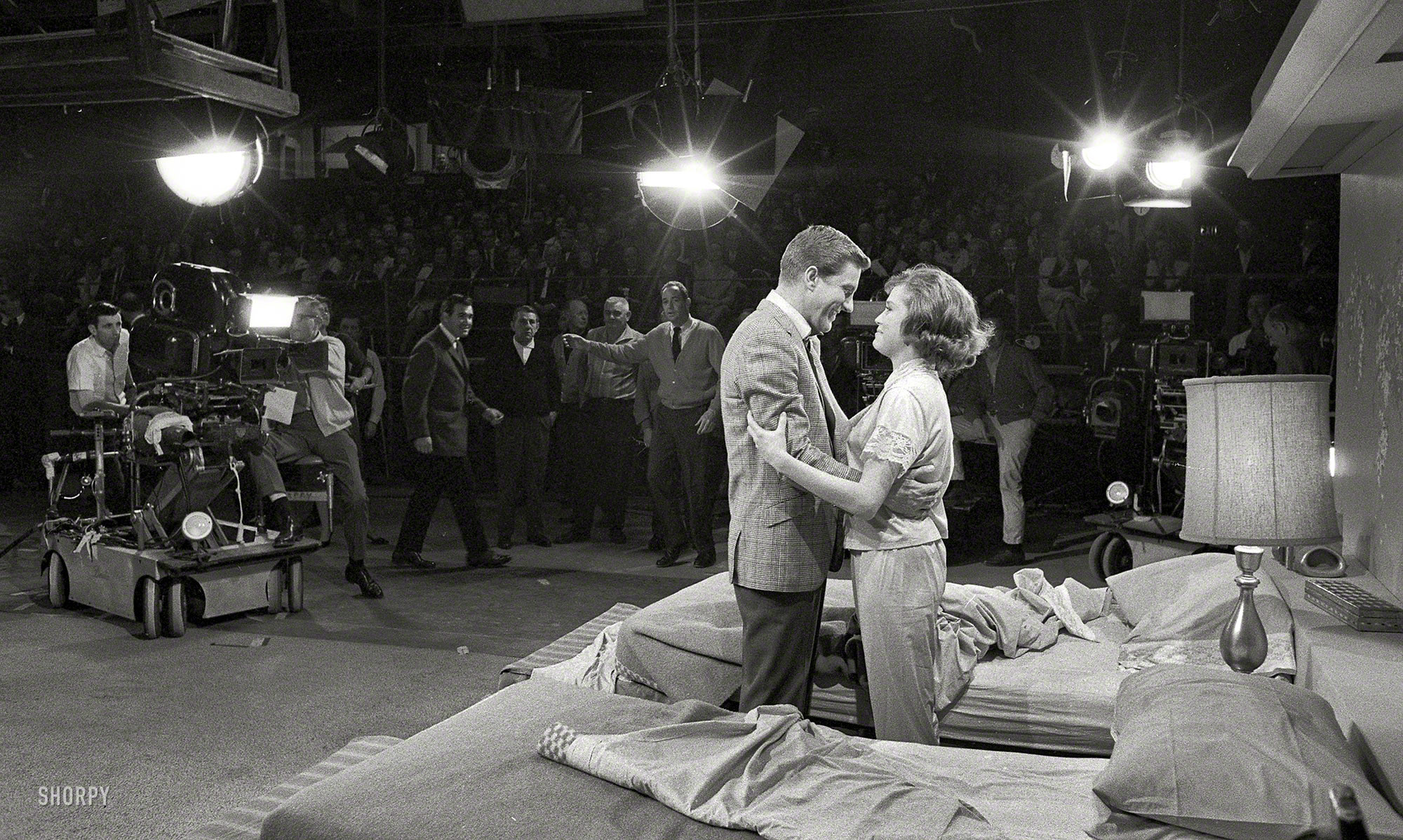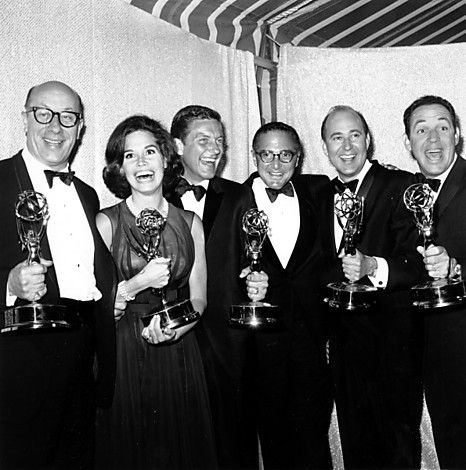With the catchiest of catchy theme songs (just try to get it out of your head) and a talented, charming, and intelligent main character, Murder, She Wrote is a beacon in the crowded crime procedural genre. Is it perfect? Far from it. But it's comfortable and it's endearing, great for a snowy afternoon or a lazy summer evening.
 |
| Via Wikimedia |
Jessica Fletcher is a woman with no apparent weaknesses. She's a great friend. She knows a little about everything. She has no fear. She's got great instinct, and she knows how to follow it to an end. She can out-police the police every time.
Murder seems to follow Jessica everywhere she goes. Whether she somehow gets roped into an international smuggling scheme or she's just looking to get some repairs done on her house, someone she knows will either be murdered or be accused of murder. You know a person's doomed at the beginning of an episode if he has some kind of interaction with Jessica. It's like the red shirts in Star Trek, only this time, it's anyone Jessica talks to.
It's a good thing she travels a lot, or else Cabot Cove would be entirely empty by the end of 2 seasons. As it is, the fictional small town has a higher murder rate than Honduras, the murder capital of the world. So, there's that. But for Angela Lansbury, we'll believe anything.
There's a whole host of guest stars in the show. Everybody who was anybody, and everybody who wasn't, in 80s and 90s television showed up at least once, including Jerry Orbach, Jessica Walter, the dad from Ferris Bueller, and even George Clooney and a teenage Neil Patrick Harris. My mom made sure to tell me through every episode what other shows each guest star had been in. Thanks, mom.
As a side note, it's a testament to Angela Lansbury's skill and grace that she was able to stay in character even opposite the worst actors possible. The famous guest stars were great. The ones who weren't so famous? Not so great.
Anyway.
| Jessica Fletcher, always peering around corners. |
Anyway.
What allowed this show to last as long as it did was that it was purely procedural—meaning that my 5-season-limit theory doesn't apply. Each episode stood entirely on its own, with the exception of a few 2-part episodes. Even after Jessica moved part-time to New York City in season 8, while the tone shifted to seem a little grittier—complete with cheesy 90s saxophone music—every episode was still largely the same as it always had been. In fact, there were some episodes, particularly in the last seasons, with exactly repeated motives, methods, character types, and solutions from earlier episodes, presumably because the writers assumed no one would notice, and probably due in part to the fact that the show had a completely new production team after season 8. But it couldn't jump the shark, because they weren't trying to develop any characters or include any long story arcs.
There were plenty of recurring characters, like Jessica's lovably grouchy best friend Dr. Seth Hazlitt (William Windom) or the debonair Dennis (Keith Mitchell), but these and all other relationships remained static for all 12 seasons. Angela Lansbury insisted that the widowed Jessica remain independent throughout the series, despite pushback from the producers, and I think ultimately that helped the show last as long as it did. Besides, Jessica don't need no man.
Overall, though, the mysteries themselves were quite interesting. While there was a formula, it wasn't so completely obvious that you knew exactly who did it 10 minutes in (in one crime show I watched, the murderer was always the third person they talked to). The mysteries weren't so easy that you could solve them immediately, but the clues were prominent enough that you could figure it out on your own if you paid attention. And, because Jessica knows people in all sorts of situations and walks of life, there are plenty of interesting scenarios in which the murders occur: operas, espionage, ghost stories, salon gossip, you name it.
Like I said, though, the show was far from perfect. Around half of season 6 was made up of episodes that weren't about Jessica Fletcher at all. Some of these episodes were meant to be pilots for other shows that never got picked up, but others were just random, disconnected storylines. I don't know if Angela Lansbury wasn't available for that whole season, or if things were just lagging for other reasons, but it was a great disappointment to watch.
| Seth is probably in the middle of calling Jessica "woman" here. Their relationship is my favorite of the series—completely platonic and completely adorable. |
The last episode, too, was a big let-down. Perhaps they didn't realize it was the last episode, or perhaps they just didn't put much thought into it, but I didn't feel like I was able to say goodbye to the show. It wasn't in Cabot Cove, for one thing, so there wasn't any closure on Seth, Sheriff Metzger, or any of the beauty shop ladies. The mystery wasn't even that good. For a show that was pretty solid for 12 years, it was a terribly anti-climactic ending.
Murder, She Wrote is best enjoyed on occasion. It's not a great binge show, because every episode is similar enough—and Jessica perfect enough—that it can get old with too much saturation. This isn't a show you engross yourself in; it's a show you can casually enjoy over a cup of tea and a puzzle. And plus, who doesn't love Angela Lansbury? Despite its (relatively minor) flaws, it's a must-watch if you like mysteries and classic TV. Or catchy theme songs.
~~~~~~~~~~~~~~~~~~~~~~~~
My Favorite Episode:
"The Last Flight of the Dixie Damsel," (S5, Ep. 7). It's difficult to pick a favorite episode of a show like this, not just because there are so flipping many episodes, but also because not many of them are really stand-outs (not that they aren't good). In this episode, a missing Air Force plane from the Korean War is recovered, containing evidence of a murder that could be pinned on Jessica's late husband, Frank. What I liked about this one was that it showed a different side of Jessica. Normally, she is completely and utterly unflappable. She's cool and collected, all the time. She always knows what to do. But in this episode, she really gets angry. When it comes to her beloved Frank, she won't allow shoddy investigation to tarnish his reputation. It also provided a little more background for Jessica that hadn't really been revealed before. It was a brief departure from the show's norm, and it worked well. It was just nice to see a little bit of humanity in Jessica every now and then.
Some Trivia:
- Angela Lansbury was nominated for the Best Actress Emmy every year the show aired, but she never won.
- Jessica Fletcher could not drive a car. In Cabot Cove she rode her bike wherever possible, and she often asks other characters for rides.
- The show's title comes from Murder She Said, a film adaptation of one of Agatha Christie's Miss Marple stories.
- Angela Lansbury and recurring guest stars Jerry Orbach and David Ogden Stiers all co-starred together in Beauty and the Beast, which filmed during MSW's run, as Mrs. Potts, Lumiere, and Cogsworth, respectively.
| The ultimate in "before they were famous" stills—Neil Patrick Harris before...well, before anything. |
Next up in the series:
LOST
Previously:
The Dick Van Dyke Show
The Sopranos
Frasier
Series introduction











